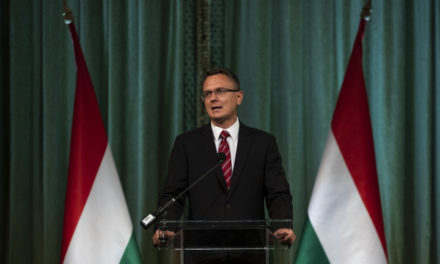A multi-year wage agreement including a significant 50% increase in the minimum wage may come in 2024, Mandiner . Interest representatives are already discussing the proposal, which would significantly speed up the catching-up of domestic salaries.
The amount of the minimum wage may rise by up to fifty percent in the coming years as part of a new, multi-year wage agreement, about which negotiations are already underway between interest representatives in the background, Mandiner learned. As a result of the wage agreement to be concluded by the end of 2024, the amount of the minimum wage would exceed HUF 400,000 gross in two to three years.
Since the middle of 2023, the trade unions and employers have been discussing what steps are needed by the end of the decade in order for Hungarian salaries to catch up with Western European wages in a more dynamic manner, so that earnings can grow in a sustainable manner for businesses as well.
This means that the employers' and employees' side agree in principle that in 2024 - similar to the agreement between 2016-2022 - the conditions that promote the rapid increase of domestic real wages, the stimulation of consumption, thus a noticeable rise in the standard of living.
The condition of the agreement is that market players, especially micro and small businesses, are able to manage larger wage increases without jeopardizing their operations.
Instead of the European minimum wage, the Hungarian minimum wage raises salaries
The multi-year wage agreement planned for 2024 will not be directly affected by the introduction of the European minimum wage, but it would also comply with the directive, as the European Union advocates agreements between social partners, i.e. trade unions and employers.
Hungary acts according to the recommendations and regulations of Brussels: the government stays away from bilateral negotiations between trade unions and employers, but at the same time supports the operation of the official forum for tripartite interest reconciliation, the Competition Sector and the Government's Permanent Consultation Forum, with billions of forints.
Hungary has long been fulfilling the most important obligations related to the amount of the minimum wage prescribed for the member states in the EU directive, that is, according to the criteria of Brussels, the European minimum wage is still the Hungarian mandatory minimum wage.
At the same time, the introduction of the European minimum wage is also an important topic in the negotiations between trade unions and employers – sometimes with the participation of the government – as some technical legislative amendments are also needed to implement the EU's non-binding recommendations.
At the same time, the related work and the parliamentary vote do not significantly affect the labor code, as both the Hungarian and the EU labor law rules are based on the recommendations of the UN International Labor Organization (ILO), i.e. the domestic and EU regulations have long been consistent .
What do we know so far about the upcoming wage agreement?
Among the specific proposals, both the trade union side and the employer side agree with the strengthening of the institution of sectoral wage agreements.
The essence of this is that the employers representing businesses representing individual sectors and the trade unions representing the affected employees enter into collective agreements.
At the moment, there are practically no such agreements in this country, collective agreements are reached at the national level, for example, on the amount of the minimum wage, as well as at the local, company level, mainly at state-owned companies and larger market players.
Employees would benefit from sectoral agreements because they would have a greater say and direct participation in shaping the working conditions that affect them, including salaries. In practice, the agreement of sector-level interest representatives would - at the request of the parties - be extended to the given sector by the decision of the Minister of National Economy, so the collective agreement would affect many more employees than at present. With this, our country would comply with even a single recommendation of the European minimum wage directive that differs from practice.
Collective agreements contain basic terms and conditions regarding working conditions, such as working hours, wages, and allowances.
Is the era of sectoral minimum wages coming?
The practice of sector-level collective agreements in the Nordic countries of the European Union and in Austria led to wages exceeding the EU average. The reason for this is that the sector actors determine the mandatory minimum wage at which an engineer or a commercial worker cannot be paid less.
The entire domestic wage system could therefore become more flexible. Currently, the guaranteed minimum wage defined at the national level fulfills this role. The employee becomes entitled to the amount, which will increase to HUF 326,000 gross this year, if he or she has at least a secondary education or professional qualification, and the existence of these is mandatory for the position or is expected by the employer.
The guaranteed minimum wage was introduced in 2006, because under the Gyurcsány government, during the period of rapidly increasing unemployment and salaries kept low by huge deductions, it was a guarantee that those with a profession or education would receive a slightly higher salary.
Today, however, the situation is completely different: the permanent labor shortage presents employers with difficult-to-manage challenges. In such a situation, businesses are no longer guided by the guaranteed minimum wage, because they hire people for as much as they can find them.
It is also certain that the traditional minimum wage will remain, and even a significant increase in the amount is also included in the plans, which would no longer be an obstacle in the new minimum wage system due to the current guaranteed minimum wage.
The minimum wage affects only a small number of employees in Hungary, only five percent of employees, roughly 300,000 people. The amount is partly for this reason among the EU's troop drivers, and partly in order to maintain the wage advantage of the guaranteed bar minimum - that is, those with at least a secondary education. At the same time, this advantage is partly unnecessary, because today there are hardly any employees who do not have at least a high school diploma.
The introduction of a system of sectoral minimum wages does not necessarily necessitate the introduction of a national minimum wage. At the same time, the current guaranteed minimum wage would become redundant, since the representatives would agree on the amount of the minimum wage at the sector level according to the real needs of employees and employers. Nowadays, the mandatory minimum wage for a highly qualified graduate employee with professional experience and a career starter with no more than a high school diploma is HUF 326,000.
All this indicates that the system is ripe for change. At the same time, the left does not follow the intensive negotiations between the parties that have been going on for almost a year, even from the sidelines. The reason for this is believed to be that it became embarrassing for Klára Dobrev and her party that it was revealed that the European minimum wage, previously called the most important task of the shadow prime minister, not only does not bring Luxembourg salaries to Hungary, but also does not require higher salaries than the current one.
Cover photo: MTI/Tamás Vasvári












